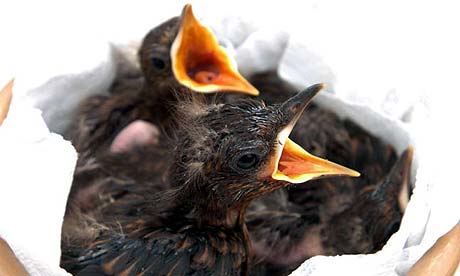Did you know if bees and other pollinators were to disappear, the cost to the UK economy could be up to £440m per year?
It’s something The Bumblebee Conservation Trust is taking very seriously — the charity says efforts to conserve bumblebees are vital, not least because the creatures play an essential role in feeding people through the pollination of crops.
The charity’s dedication to preventing the decline of the bumblebees is just one example of just how vital the work of wildlife charities is — and you don’t have to look far to see more examples of the impact they have.
The RSPB is part of a new partnership tackling wildlife crime, Peta recently offered an £1,000 reward to catch a gull killer and further afield, wildlife conservation groups sprang into action after the BP oil spill.
Just as varied as the different types of work carried out by wildlife charities is the range of careers within them — you could find yourself working directly with the flora and fauna, fundraising or coordinating volunteers and publicising events.










